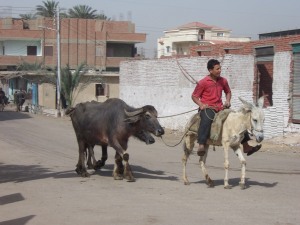BiND: Day 12
You know, I’m really glad we have such great stories today because I was wondering what else I could say about ritual laws and censuses (which conveniently showed up at the end of today’s reading, significantly slowing me down even though I was reading while getting a pedicure…). Thankfully today’s reading is a little of everything—a little poetry, a little talking donkey, a little confusion, a little blessing-instead-of-cursing, a little battle, a little booty-taken-from-battle, a little women-are-property, a little idol worship, some numbers and rules and instructions for festivals and holy days and their offerings—it’s a good mix!
 So, naturally everyone is probably most curious about the talking donkey business. Balaam, who is not an Israelite and yet serves/calls on YHWH the Israelite God. You may have noticed that Balaam was commanded by God to go to Balak and say whatever God told him to say. But then when he goes, God is angry about it and we get into a story about a seer (Balaam) who can’t see, but a donkey that can both see and speak. The story of the donkey (chapter 22 verses 22-35) is most likely a separate story that has been inserted here and bears all the characteristics of a folk tale (talking animal, three-part structure)—and its insertion is confusing, but fun!
So, naturally everyone is probably most curious about the talking donkey business. Balaam, who is not an Israelite and yet serves/calls on YHWH the Israelite God. You may have noticed that Balaam was commanded by God to go to Balak and say whatever God told him to say. But then when he goes, God is angry about it and we get into a story about a seer (Balaam) who can’t see, but a donkey that can both see and speak. The story of the donkey (chapter 22 verses 22-35) is most likely a separate story that has been inserted here and bears all the characteristics of a folk tale (talking animal, three-part structure)—and its insertion is confusing, but fun!
Once Balaam arrives we have the four oracles. It’s likely that oracles 3 and 4 are much older than the surrounding text—some scholars suggest they date from as early as the 1200s BC. The first two, and the narrative/prose that surrounds the entire episode, was put together to explain what’s going on and how it’s possible that the Moabites (who are probably much stronger than the Israelites) are unable to win this battle. God’s blessing is on the Israelites, and what they do will not fail. You might also notice that there is a tone of optimism and hope in the first three, but the fourth follows the predictions of Leviticus, suggesting that at some point the Israelites will be sent out into exile. Regardless of the date of the poetry, though, we have here a surprisingly good and positive portrait of a non-Israelite who serves the LORD and who does only what God asks of him, says only what God gives him to say—remarkably like a prophet, actually. And his donkey too.
This passage also contains two sections about women that are, underneath the surface, really excellent. Zelophehad’s daughters successfully petition a patriarchal culture to allow them to inherit property (and this rule continues throughout the generations: when there is no son, the daughters may inherit). This is a big deal for women—without this provision, without the bravery of these five girls, daughters with no brothers would literally be stranded with no resources if their fathers died. The second section is more troubling on the surface: women who make vows can be overridden by their fathers or husbands, clearly implying (stating, even?) that they are property, not whole individual persons. Which is pretty awful and pretty contextual (as in, hard to relate to our own lives!). But under the surface we find that vows are a really important and serious thing—they presuppose that God is an active covenant partner and that a vow, once spoken, is binding on both the speaker and God. And women can make vows, can take God seriously in that way, and if a male relative later decides it’s no good, he bears the penalty of breaking a vow (something which ritually pollutes the family and the community, as well as potentially having financial and legal ramifications). We see this law in action in the early chapters of 1 Samuel, where Hannah makes a vow and her husband explicitly allows her to keep it.
What an interesting day of reading! What did you notice? What caused you questions or problems? What piqued your interest?